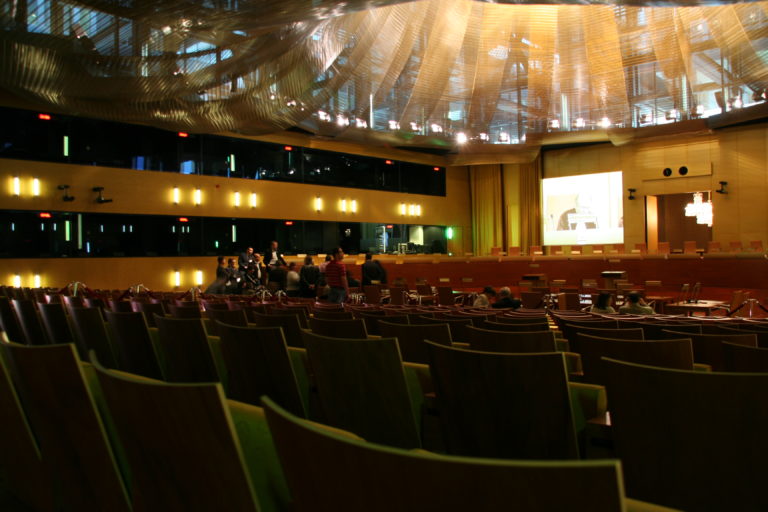
This Thursday at 9:30h, the first hearing of the appeal filed by the Catalan National Assembly and the Council for the Catalan Republic before the Court of Justice of the European Union took place in Luxembourg, against the dismissal of the European Citizens’ Initiative “European Union Law, Minority Rights and Democratization of Spanish Institutions” by the European Commission in July 2019.
The European Citizens’ Initiative (ECI), introduced by Assemblea and the Council in May 2019, aims to call on the European Commission to activate monitoring mechanisms for systemic threats to the rule of law in the case of the Spanish state, in the face of serious violations of fundamental rights.
The initiative aims to show that these violations are not specific but widespread, and are a result of the political process of self-determination in Catalonia, which have revealed systemic defects and risks in the Spanish state that violate the fundamental rights recognized in the European Convention on Human Rights, contained in the Treaty of Lisbon.
They emphasize the lack of respect for minority rights; the politicization of high courts; a lack of control mechanisms in high courts; the lack of respect for the direct application of norms and guiding principles of the European Union; the state’s abuse of various mechanisms for legal cooperation between member states; the violation of civil and political rights of minorities and their representatives; and the systematic violation of certain rights without which a society can hardly be described as fully democratic.
The Commission’s argument for rejecting the ECI was that it did not meet the requirements because they consider that the Commission has not been asked to submit a legislative act. From the point of view of the Assembly and the Council, this response of the Commission does not conform to the legality of the European Union.
Assemblea and the Council have been represented by attorney Gonzalo Boye, who has argued that the ECI is indeed requesting a legal act, as set out in Article 288 of the Treaty on the Functioning of the Union European Parliament, which includes legislative acts, but also decisions, recommendations and opinions.
Mr. Boye has argued before the court that the Spanish state has a problem with national minorities such as the Catalan people and that the formal argument is an excuse for not getting to the bottom of the issue. He has also stated that if the appeal is rejected, Assemblea and the Council will re-introduce the Initiative in the terms indicated by the EU Court of Justice, to evidence once again that it will be rejected by the Commission, and that they will be back in Court with a new appeal a year later.
It is worth noting that there is jurisprudence in similar cases, such as the ECI on EU fundamental rights in Hungary, registered without complaint by the European Commission in November of 2015, which also called for the application of Article 7 for breaches of the EU’s fundamental values in a European country; and the Minority SafePack initiative to defend the rights of minorities across the EU, initially rejected by the Commission, which set a precedent for a favourable resolution before the ECJ.